Basic Arithmetic Normal Addition & Subtraction Worksheets for 4-Year-Olds
6 filtered results
-
From - To
Enhance your child’s early math skills with our Basic Arithmetic Normal Addition & Subtraction Worksheets for 4-Year-Olds. Designed specifically for little learners, these engaging worksheets focus on fundamental addition and subtraction concepts, ensuring your child grasps basic arithmetic in a fun and interactive way. Packed with colorful illustrations and age-appropriate challenges, our worksheets help develop key problem-solving skills and boost confidence in early math. Ideal for preschoolers, these printable resources are perfect for at-home learning or classroom use. Foster a love for math from an early age with Kids Academy! Download your set today and get started.
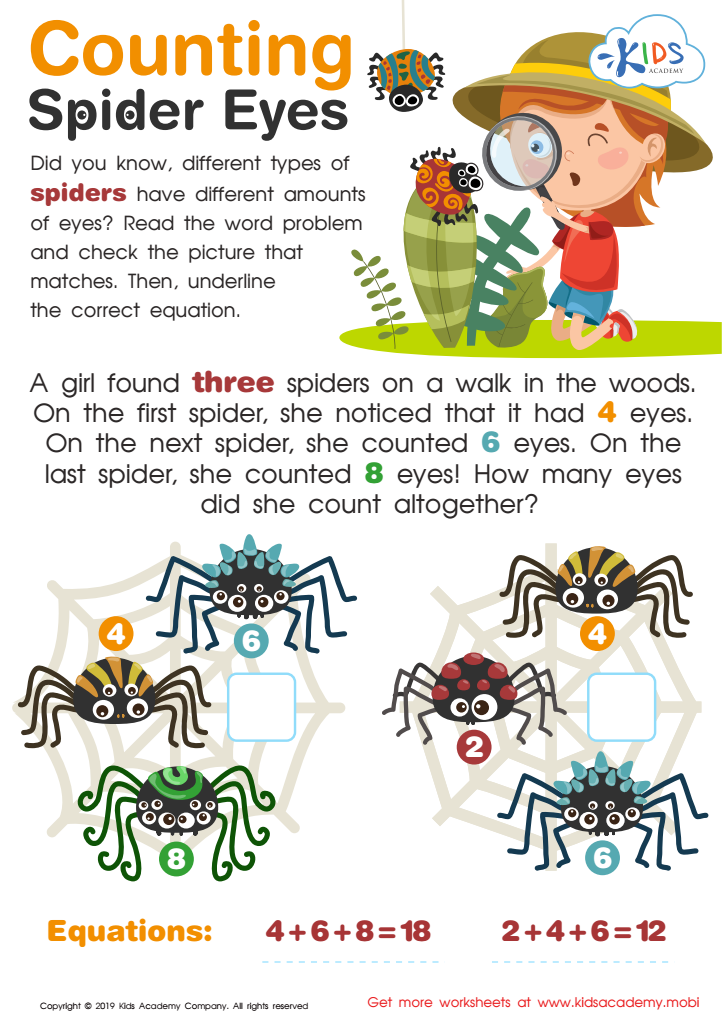

Counting Spider Eyes Worksheet
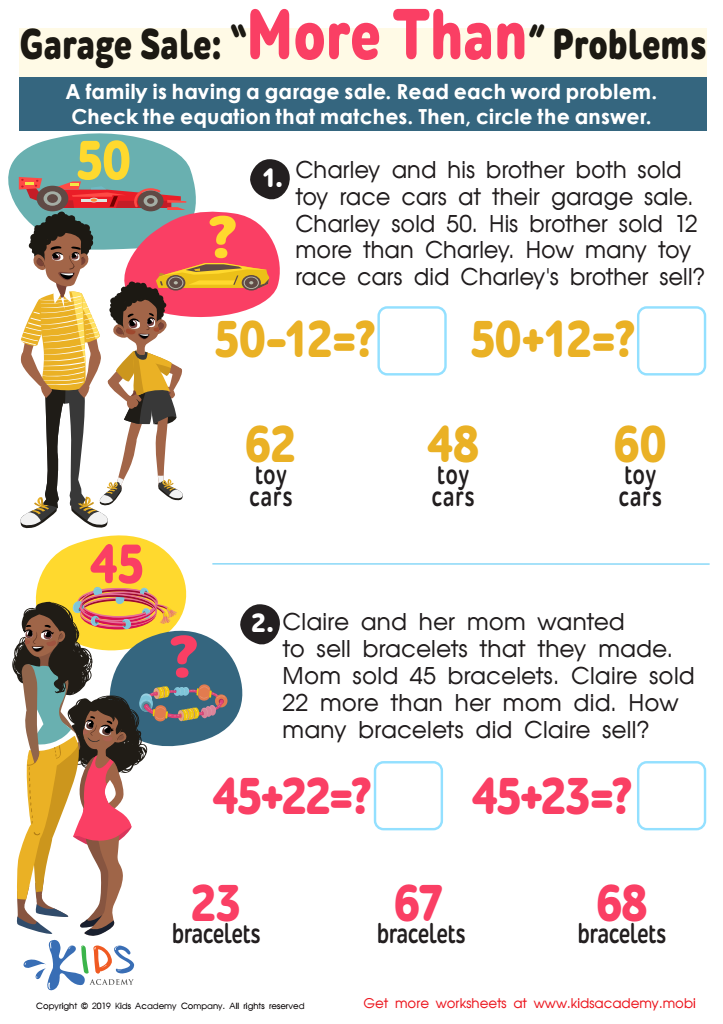

Garage Sale - More yhan Worksheet
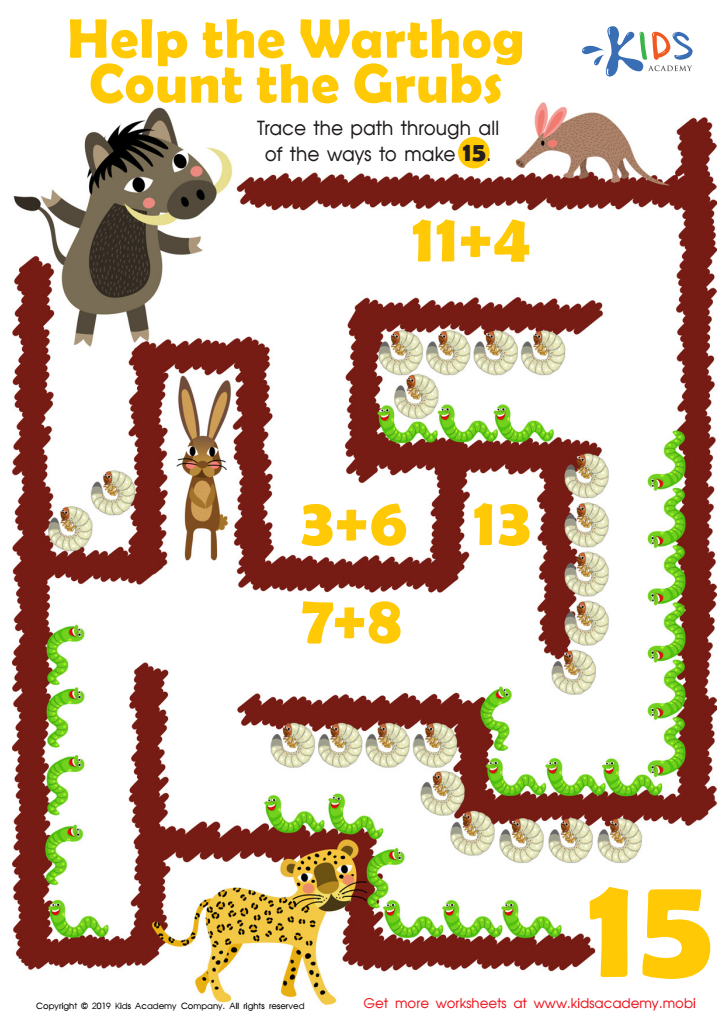

Help the Warthog Count the Grubs Worksheet
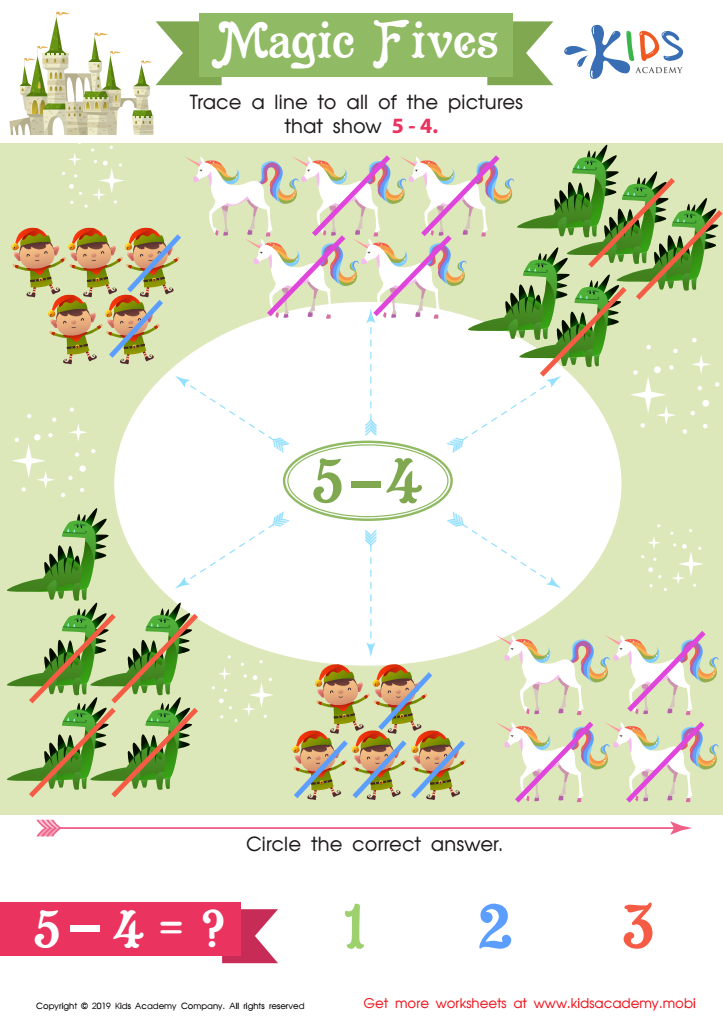

Magic Fives Worksheet
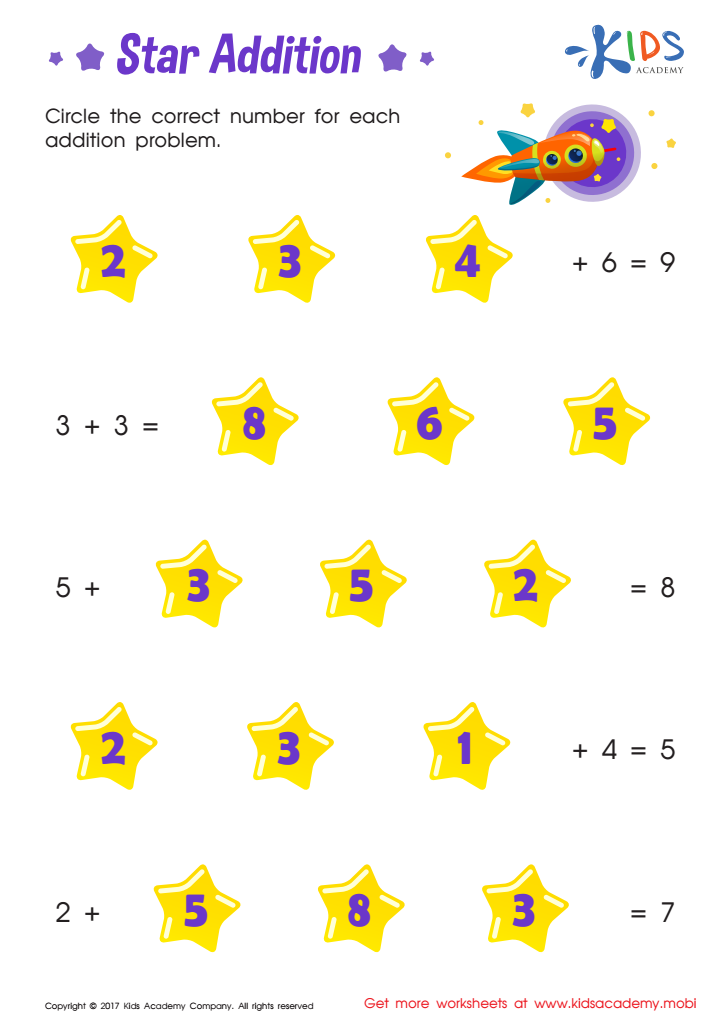

Star Addition Printable
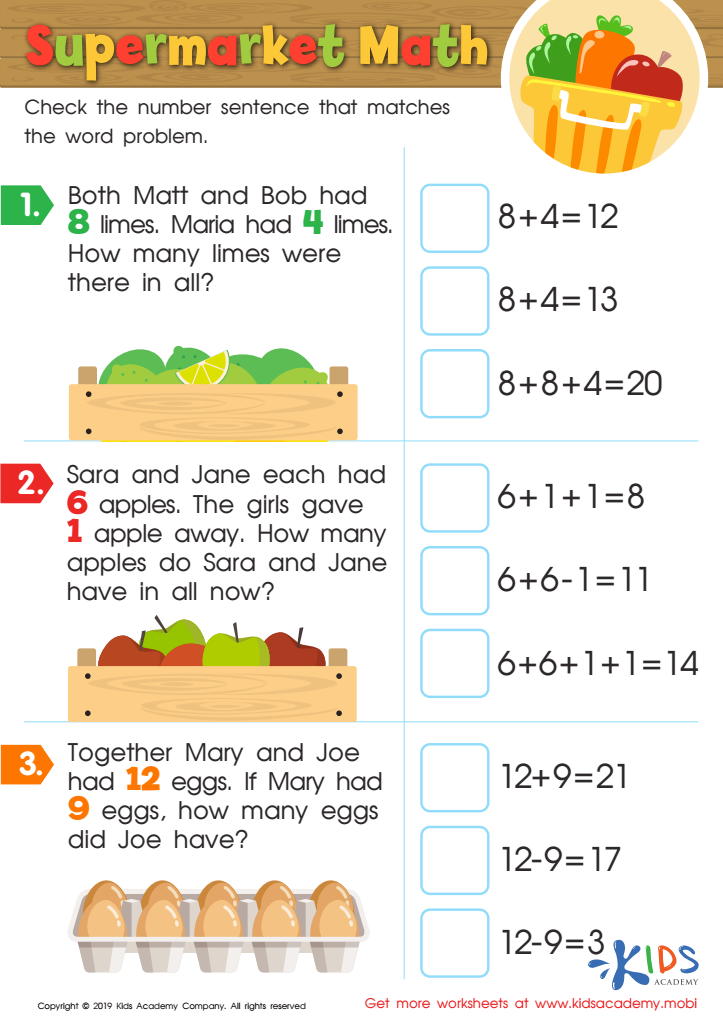

Supermarket Math Worksheet
Parents and teachers should care about basic arithmetic, such as normal addition and subtraction, for 4-year-olds as it is foundational for their future academic success and cognitive development. Introducing these skills early helps young children develop numerical fluency, logical thinking, and problem-solving abilities, which are crucial across all areas of learning.
At this age, children's brains are highly receptive to new information. Early arithmetic lessons can enhance neural connections, making learning more natural and intuitive. These skills support everyday tasks and interactions, fostering a child's confidence and independence. For example, understanding basic arithmetic helps children grasp quantities, make comparisons, and understand the concept of "more" or "less."
Moreover, early exposure to arithmetic sets the stage for success in more complex math and science subjects later on. As children become comfortable with numbers at a young age, they are more likely to approach advanced mathematical concepts with confidence and curiosity.
Additionally, early arithmetic practice supports language development, as explaining their thought processes and reasoning in simple math terms enhances children’s communicative skills. It creates opportunities for parents and teachers to engage with children in meaningful, collaborative ways, strengthening their relationship and building a supportive learning environment.
Therefore, nurturing basic arithmetic skills in 4-year-olds is an investment in their overall intellectual growth, equipping them with essential tools for both academic and everyday life.
 Assign to My Students
Assign to My Students




















